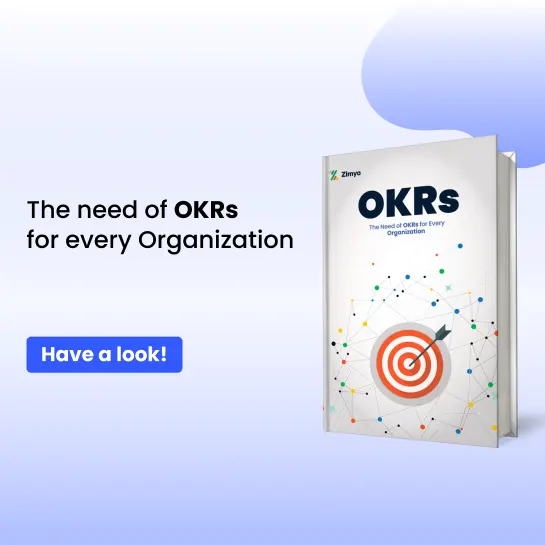A Digital Marketing Executive is responsible for developing, implementing, and managing marketing campaigns that promote a company’s products or services online. Their role includes enhancing brand awareness within the digital space, driving website traffic, acquiring leads/customers, and measuring campaign performance using analytics tools.
These interview questions help assess a candidate’s hands-on experience across various digital marketing channels (SEO, SEM, social media, content, email, etc.), strategic thinking, data interpretation skills, and familiarity with industry tools and platforms. They also evaluate how well a candidate can align digital marketing efforts with business goals.
Interview Questions + Tips on How to Answer
1. Can you describe your experience in digital marketing?
How to Answer:
- Summarize years of experience, key industries worked in, and the platforms/channels you’ve managed (Google Ads, Meta Ads, SEO, etc.).
- Mention outcomes when possible (e.g., “increased website traffic by 40% in 3 months”).
2. What digital marketing tools have you used?
How to Answer:
- List tools by category:
- SEO: Ahrefs, SEMrush, Moz
- Email: Mailchimp, HubSpot
- Ads: Google Ads, Facebook Ads Manager
- Analytics: GA4, Hotjar, Search Console
- Highlight your proficiency with each.
3. What’s your process for creating a digital marketing strategy?
How to Answer:
- Break it down into steps:
- Define goals (traffic, leads, conversions)
- Identify target audience
- Choose channels
- Create content/calendar
- Launch & track KPIs
- Add an example where this approach worked.
4. What metrics do you focus on to measure campaign performance?
How to Answer:
- Mention:
- CTR (Click-Through Rate)
- Conversion Rate
- ROAS (Return on Ad Spend)
- Engagement Rate
- Bounce Rate
- Explain how you adapt based on these.
5. Have you run paid ad campaigns? What results did you achieve?
How to Answer:
- Discuss your experience with platforms like Google, Facebook, LinkedIn.
- Talk about budget, targeting strategy, creatives used, and ROI.
6. What’s the difference between SEO and SEM?
How to Answer:
- Keep it simple:
- SEO = organic traffic
- SEM = paid search
- Give a real-world example of using both in tandem.
7. How do you stay updated with digital marketing trends?
How to Answer:
- Mention resources: Search Engine Journal, HubSpot, Neil Patel, LinkedIn, newsletters, webinars.
- If you’ve applied a trend early (e.g., AI-generated content), share how it worked.
8. Describe a campaign you worked on from start to finish.
How to Answer:
- Use the STAR method: Situation, Task, Action, Result.
- Focus on problem-solving and creative strategy.
9. How do you approach keyword research for SEO or paid ads?
How to Answer:
- Mention tools: Google Keyword Planner, SEMrush, Ubersuggest.
- Discuss intent (navigational, transactional) and long-tail keywords.
- Talk about how you group keywords by topic and funnel stage.
10. How do you optimize content for SEO?
How to Answer:
- Cover: keyword placement, meta tags, alt text, internal linking, readability, structure (H1–H3), and user intent.
- Add an example where your optimization improved rankings.
11. Have you managed social media for a brand? What was your approach?
How to Answer:
- Talk about platforms used, posting frequency, type of content, community management, and analytics.
- Mention engagement growth or follower increase if applicable.
12. What’s your process for creating a marketing funnel?
How to Answer:
- Outline TOFU (awareness), MOFU (consideration), BOFU (conversion).
- Explain what content works at each stage.
- Share tools or platforms used to track movement across the funnel.
13. How do you ensure your email campaigns perform well?
How to Answer:
- Discuss: subject line testing (A/B), personalization, segmentation, automation, CTA clarity.
- Mention open/click rates or sales increases from campaigns.
14. How do you handle a campaign that’s not performing well?
How to Answer:
- Show a data-first approach.
- Mention testing headlines/creatives, re-targeting, optimizing budget, or changing audience criteria.
- Demonstrate how you troubleshoot and iterate fast.
15. Have you worked with influencers or affiliate marketing?
How to Answer:
- Share how you selected partners, measured ROI, and tracked performance.
- Include any platforms you used (e.g., Impact, Upfluence).
16. What’s your experience with GA4 or other analytics tools?
How to Answer:
- Mention how you set up events/goals, created dashboards, and interpreted user behavior.
- Share how insights informed decisions.
17. How do you handle tight deadlines or multiple campaign launches?
How to Answer:
- Talk about time-blocking, project management tools (Trello, Asana), and prioritization.
- Show you can manage performance under pressure without compromising quality.
18. Have you created landing pages? What elements do you consider?
How to Answer:
- Discuss layout, CTA placement, mobile responsiveness, SEO, loading speed, and A/B testing.
- Share improvements in lead generation or bounce rate.
19. What role does content marketing play in digital strategy?
How to Answer:
- Emphasize storytelling, value addition, and nurturing leads.
- Mention formats: blogs, videos, whitepapers, etc.
20. Do you have experience with marketing automation tools?
How to Answer:
- Mention tools like HubSpot, ActiveCampaign, or Mailchimp.
- Explain how automation saved time or improved lead nurturing.
21. What’s one digital marketing campaign that inspired you recently and why?
How to Answer:
- Choose a campaign from a well-known brand that reflects innovation or strong storytelling.
- Explain what you learned and how you might apply it.
22. Where do you see yourself in the next 3–5 years in marketing?
How to Answer:
- Show ambition but be realistic.
- Mention evolving into a strategist or performance marketing lead.
23. Do you have any questions for us?
How to Answer:
- Ask about:
- Upcoming campaigns
- Team structure
- KPIs for success
- Growth opportunities
- Shows engagement and curiosity.


